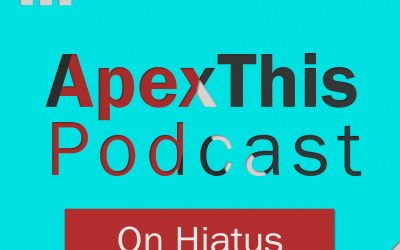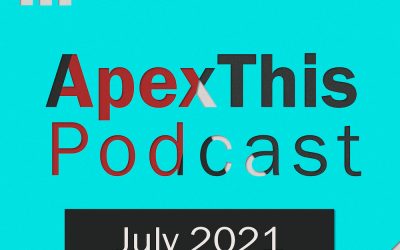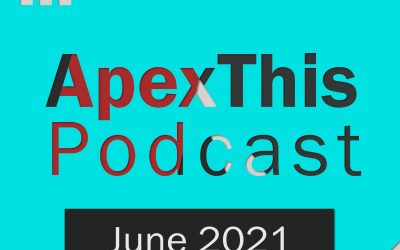Podcast: Play in new window | Download
Subscribe: Apple Podcasts | Google Podcasts | RSS
In This Episode
I talk about how music is used to set the mood of your show as well as where and how to get music for your podcast.
Links
Creative Commons
- Creative Commons – Podcasting Legal Guide
- Creative Commons – Legal Music for Videos
- Creative Commons – Licenses
Music Directories
Featured Artist
Episode Credits
This episode is hosted, edited, scored and written by Mark W.
Additional songs, “Character” and “Whats Her Face”, provided by local Kansas City songwriter, singer, & rapper Nina d.o.t. Ross.
Transcript
Intro
Welcome to ApexThis.Podcast. A chronicle of my journey to start a publishing side business. This will be a behind the scenes look at what I’m doing to make that happen. I’ll share tips and best practices that I learn along the way. Tips that you can use to start your very own podcast and share your voice with the world.
Coming up…
Music.
Many want to know how and where to get it. If they need it? And what style of music should they choose for their podcast?
The answer to such inquiries is with another…what mood are you trying to set? Or what story are you trying to tell?
Mood
Music can play as little or as major of a role in your show as you want.
I gave a speech on creating a podcast last year, one of the questions that was asked was ‘what type of music should my podcast have?’
My answer? Anything you want, so long as it sets the proper mood and tone you want for your show.
Ask yourself, are you a high energy group that riffs quickly off one other? Then you may want something with a faster tempo that brings that energy and mood to the music, something to match the tone of your hosts.
<audio clip>
Or, would you instead choose a dramatic string musical piece to pair against your high energetic tone?
<audio clip>
That felt off didn’t it? The music put you in a mood for a slow, measured, emotional, dramatic piece but you were beaten over the senses with the exact opposite.
Think about what you see in movies and TV. You may not notice the music in the background, and maybe you do, but think about how the music accompanies the scene.
Imagine someone being chased through the dark city streets.
And the music kicks in
The music is setting the mood and is matching the tone of the scene.
This can just as well apply to no music at all.
Let’s take an example of something you know. Interstellar. If you have not seen it, then this may be a spoiler for you.
I mention Interstellar as it has an amazing soundtrack by Hans Zimmer. One of my favorite songs from the soundtrack is called Mountains.
And it is played during the Miller’s Planet scene.
In this scene, they land on a seemingly watery planet looking for a signal. This was a costly decision for the team as time moves differently on this planet.
As you start the scene, you hear a clock ticking in the background.
It’s slow. Methodical. Reminding the listener of the imposed time limit and placing an urgency in the scene.
As the scene builds, the music begins to swell, coming to the forefront, making itself known.
The dialogue occurs between these moments.
And the music takes over.
This is where story comes in.
In the absence of words, music tells a story.
One can use music to invoke emotion in the listener as dialogue occurs and continue that emotion as the scene plays out.
A change in volume, or tempo, guides the listener letting them fill in the story. Letting their imagination play out.
As the music twists and turns and stutters so does the imagined story. So does the listener.
Background Music
Music can be used to illicit emotion and tell a story, but in other cases, music can be used to drown out imperfections, move you along, or signal a shift in format.
The talk podcasts that I listen to overwhelmingly exclude music as a backing track. This is understandable. This is standard.
There are exceptions.
One podcast that I listen to plays a musical backing track throughout the entire episode.
Doing so adds a subtle level of accompaniment to the solo host. Solo host podcasts are…difficult if you’re not constantly interviewing then you must have something else to get people to listen.
With the backing track on a talk podcast, I feel it adds depth to it, a just enough of a distraction that you may not notice that there is no co-host.
But be forewarned. Having the wrong music track can set the wrong tone or be too distracting.
Transitions & Segments
Others use music for transitions or segment changes.
You’ve heard this before. I’ve done it on this very podcast. I’ve done it, in this very episode.
You may see the transitional music at play when it comes to news podcasts.
Take KUT Weekend. An Austin NPR podcast. The close of one report gives way to the next. This is done by utilizing the extensive library of songs they have license to use to push you, the listener, into the next story.
A palette cleanser if you will.
Segments & Ads
Another use is for segments and ads.
Take the Easy Allies podcast
<audio clip>
Have you noticed this with others? How about with ads? Not only is music used to transition, but some create music explicitly to let the reader know that this is an ad.
Music can be markers and place points to grab the listeners attention. They can be a way to say “I’m doing something different. You may want to look!”
Errors
Or it could be a way to quietly say “There is nothing to see here”
Another tool in the podcasters toolbox is using music to cover audio imperfections.
Maybe you record where there is a lot of city background noise. Maybe your recording isn’t exactly clean. Music can help you cover these imperfections.
If you were to strip the backing track to this portion of my recording. You may hear that there is a hum to it. One that would surely drive you insane.
Or maybe even turn you off.
Create
You now understand some of the things music can do for you. So, how do you get it?
One option, create it.
At the Austin Podcasters meetup, I’ve had the chance to chat with some awesome folks.
Some have created their own music by some hooking up their guitar and playing a few strings. Others like me, whipped ours up in Garageband.
For myself, I enjoy creating and writing music so there was no question that I would want to create my own podcast music.
After creating a full song version (that to this day is still being tweaked), I chopped it up to create a theme that comprised of intro’s, outro’s and transitions.
In doing so, I created a particular instrumental theme for any new music I create for this show to help keep it identifiable and consistent.
But, if you can’t create your own song, that’s OK. There are other options available to you. Like licensing.
License
I’m not a lawyer, hint, hint, but despite what you may think, you can’t simply claim “fair use” when using others music in your podcast.
The best route to take, if not creating your own music, is to license it.
This can come in a multitude of ways but I will list two of the easiest methods.
One is to use a music directory such as freemusicarchive.org, Freeplaymusic.com, Or even Soundcloud.
Generally, these libraries will have songs that utilize a creative commons license.
There are multiple types of these licenses. The ones you may be interested in, are those marked as Attribution license.
This license lets you tweak the song, distribute it, even commercially, so long as you credit the artist.
There is Attribution-ShareAlike which lets you tweak, distribute and build upon the work so long as you credit and license under the same terms.
Then there is Attribution-No Derivative which allows you to distribute it but you cannot change the works.
There is Attribution-NonCommercial, nonCommercial ShareAlike, and noncommercial no derivatives.
The licensing does become tricky. Take non-commercial license. This means that if you plan to profit from the podcast such as Ads, then you cannot use songs that have a non-commercial license.
Next is no derivatives. This means no modification or remixing of the work. One could argue that by speaking over the track you are remixing the work.
Either way, the music libraries include how the song is licensed so be sure to read before using and know for certain if you ever will attempt to monetize your podcast so that you can choose the proper license type now.
Permission
Ok, you may be saying, “Mark, that was a bit too much. Make this easier. How do I get music?”
Permission.
Sometimes the easiest way is to just ask for it.
I don’t mean emailing Beyonce, Hans Zimmer, or Daft Punk, for permission to use their songs in your podcast because you aren’t getting it. And if you did, you couldn’t afford it.
And if you could, then I have a few songs of my own if you would be interested in licensing them.
Getting a known artist will be next to impossible, so, go local. Go indie.
If they like what your podcast is about, then you may be shocked to get an approval. Or they may very well view it as exposure and grant you use of their music if you credit them in your podcast.
And all you have to do is ask.
Closing
And that’s it!
I hope that this has been helpful and causes you to think a little about how to use music in your podcast or see how others use music in their show.
With this, you can call this a season 1 wrap as I retreat to work on content creation.
In doing so, I circle back to episode 1 “Focus”.
With so much to do, one needs to step back, prioritize, and focus on the right tasks.
I will be taking a break from the bi-weekly release schedule to focus on my next project for ApexThis.
This will be a passion project that I’ve given talks on and have annoyed my friends with.
Budgets.
I know, I know.
I’ll be working on finishing the first draft for my e-book and scripting for audiobook and or podcast mini-series.
Going through this process will be an invaluable learning experience as I navigate a portion of the self-publishing world.
I will continue with monthly updates but the main feature episodes, such as this, will take a break…for now
Be sure to check out the show notes for links to the music libraries and creative commons license descriptions.
Also included will be a podcast legal guide that they have put together.
The show theme music is written and produced by myself, Mark Williams.
Additional music provided by Kansas City artist Nina DOT Ross.
You can follow me on Instagram and Twitter at ApexThis.
Subscribe to Apple Podcasts, Google Play Music, or your favorite podcast app.
Until next time.



0 Comments